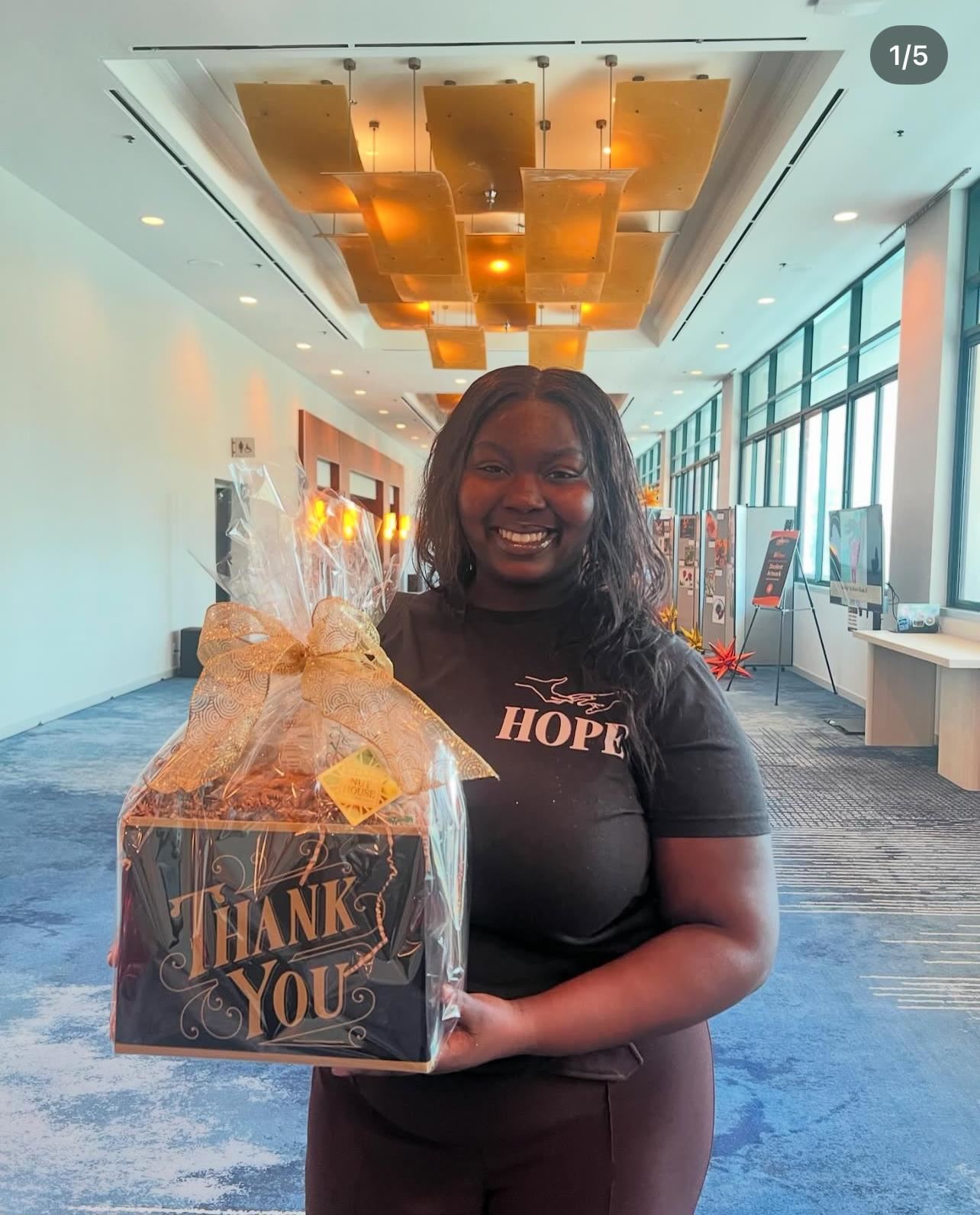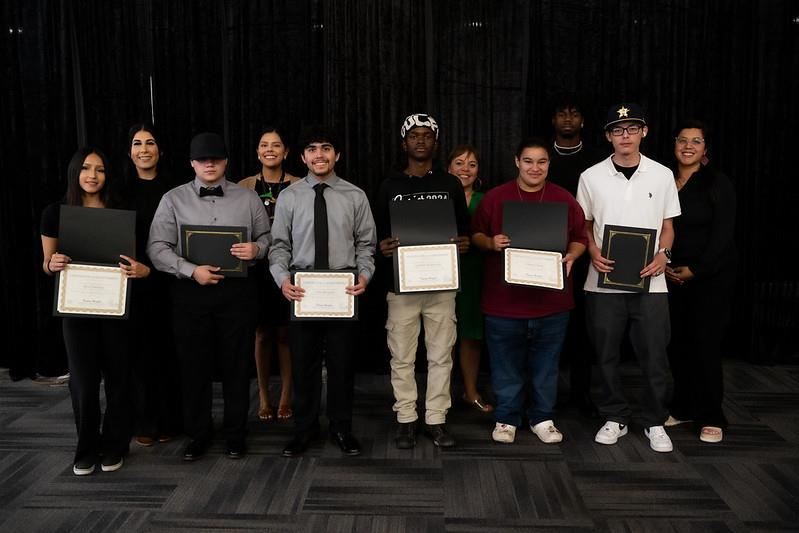- Council of the Great City Schools
- “Public Education Matters”
Digital Urban Educator - March 2025
Page Navigation
- Legislative Conference to Feature CNN Correspondent, Political Commentator, and Education Professor
- New Leaders Named in Las Vegas, Rochester; Albuquerque Superintendent Receives Contract Extension
- Council Releases Statement Opposing Executive Order to Dismantle the Department of Education
- Two Educators Selected as ‘Leaders to Learn From’
- $25,000 Milken Educator Awards Announced
- “Public Education Matters”
Fresno Unified’s Project ACCESS Supports Unhoused and Foster Youth
-
For young people living in foster care, it can be hard to trust adults. But staffers with California’s Fresno Unified School District’s Project ACCESS are working to change that while ensuring its students who are unhoused or living in foster care have all their needs met.

“We have the instability of people coming in and out of our lives,” said Jammy Harris, 22, who lived in foster care from middle school through high school. “You deal with people saying they’re going to do things [for you] and not doing them.”
So when her Project ACCESS social worker at Sunnyside High School kept reaching out, week after week, to make sure Harris had what she needed—emotionally, physically, and materially—Harris realized she finally had one adult in her life who didn’t disappoint her.
“It takes a lot for [youth living in foster care] to open up,” Harris said. “But my social worker was always calling me in…I built a relationship with her.”
Young people living in foster care or who face housing insecurity or have lost their homes experience instability and trauma that can adversely affect all aspects of their development. They might not get basic necessities like food, water, shelter, and sleep. They often feel they don’t belong in their schools and find it difficult to establish relationships. Their physical and mental health might suffer as a result. Sometimes, they don’t make it to school for days or weeks.
Under these circumstances, it can be nearly impossible for young people to thrive academically or otherwise. So for Harris, now a sociology major at Fresno State University, Project ACCESS was a godsend.
Federal Title I funding means Project ACCESS can “push in and fill that Maslow’s [hierarchy of human needs] gap,” said Project ACCESS manager and district foster care and homeless liaison Tumani Heights “so these students can give their 100 percent academically.”
Federal funding has enabled districtwide reach forthe Project ACCESS team, and it has significantly expanded since Heights came on board seven years ago, she said. Today it includes nearly two dozen clinical social workers, two academic counselors, two community liaisons and office staff who focus on supporting the social, emotional, and academic wellness of all the district’s foster and unhoused students, from kindergarten through 12th grade, in its 100-plus schools.
“They are children. They are still developing,” Heights said. “It’s our responsibility to help them.”
To help students not only attend school regularly but also thrive socially and academically, Project ACCESS staff focus on building strong community partnerships. These partnerships provide students with resources beyond the school, including clothing, food, housing, and mental health support for themselves and their family members.
Recognizing that many unhoused youth and those living in foster care miss out on extracurricular activities because they are cost-prohibitive, Project ACCESS focuses part of its efforts on funding extracurricular activities for its students, with the goal of ensuring students build positive relationships at school so they “act out in positive ways versus acting out because they’re frustrated or they don’t feel connected,” Heights said.

She cited college visits, sports, and school dances as activities and events that amount to important milestones for teenagers. When students miss out on these opportunities because they are not able to pay the associated fees, “they’re not going to have those memories,” Heights said.
In addition to directly supporting students by paying for extracurricular activities and contracting with external providers to provide tutoring for its youngest students, Project ACCESS also builds the capacity of Fresno educators and school leaders to support unhoused students and those who live in foster care.
“Often [these youth] feel as if they are outcasts or are seen as troublemakers because they haven’t been equipped to deal with their trauma,” Heights said, “and sometimes our educators aren’t equipped to work with [them].”
The program also organizes parent advisories to support its students’ adult family members.
“We have to be willing to go into their space and hear from them, building authentic relationships so they can be transparent with us,” Heights said. From there, Project ACCESS builds wraparound supports to help ensure the students it works with get to school each day.That wraparound support was integral to Harris successfully completing high school. Whether it was her social worker regularly touching base with her to ensure she had what she needed for school and at home or project staff making sure her high school graduation cap, gown, and ring costs were covered, Project ACCESS was both a lifeline and a refuge for Harris throughout her time at Sunnyside High School.
“Project ACCESS shows up for you,” Harris said, “and shows they’ll be there in uncertain times.”
In addition to pursuing her college degree, Harris has taken a cue from her experience as a youth living in foster care and started a nonprofit called For All People There is Hope. The organization helps ensure foster youth ages 17 to 24, many of whom are transitioning into their own apartments, have furniture and professional attire.
“There’s people who choose to stand in the gap where a lot of youth fall in between, and Project ACCESS catches the youth who fall into gaps,” she said. “That is a necessity,” Harris said.
Media Contact:
Contact Name
Contact@email.com
(000) 000-0000
Contact Name
Contact@email.com
(000) 000-0000
Contact Name
Contact@email.com
(000) 000-0000
Media Contact:
Contact Name
Contact@email.com
(000) 000-0000
Contact Name
Contact@email.com
(000) 000-0000
Contact Name
Contact@email.com
(000) 000-0000


